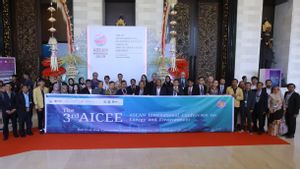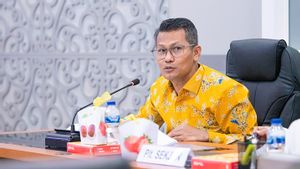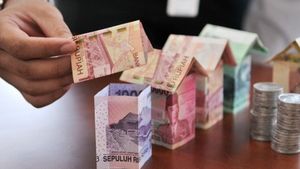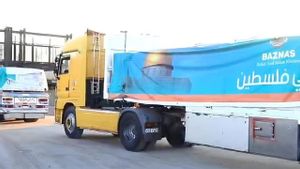JAKARTA - Based on the projection of the International Renewable Energy Agency (IRENA), an injection of funds of US$29.4 trillion or Rp448.23 quadrillion (exchange rate of Rp15,246 per US dollar) is needed until 2050 to carry out the ASEAN energy transition with a 1.5 degree C scenario with a 100 percent renewable energy scheme.
"According to the IRENA Renewable Energy Outlook for ASEAN report, to carry out the energy transition, ASEAN requires funding of USD29.4 trillion by 2050 in the 1.5?C scenario with 100% renewable energy," said Minister of Energy and Mineral Resources (ESDM) Arifin Tasrif at the Sustainable Energy Financing and Energy Investment of Energy Investments To Ensure Energy Security and Achieve NDCs In ASEAN, quoted Thursday, August 24.
Arifin said the funds were aimed at developing renewable energy plants, transmission (national and international), distribution, and storage, supply of biofuels, electrification (EV cars and EV chargers), as well as in considering a wider cost perspective that includes fuel, operation and maintenance costs.
"To finance these measures, sustainable energy financing is needed. This can be achieved in various ways, including, mixed financing which can vary in shape, such as grants, soft loans with favorable requirements, and mutual investment. Second, the Government-Swasta Partnership (KPS) and International Funding by accessing international climate funds, such as the Green Climate Fund, can provide additional resources for clean energy initiatives," said Arifin.
اقرأ أيضا:
Arifin said that in addition to conducive environmental funding for investors, it is also important to mobilize environmentally friendly energy investment and this can be created through providing incentives, a clear and supportive policy framework, including long-term energy plans and regulations that can build investor confidence. Finally, a Transparent Investment Procedure.
Director General of New Renewable Energy and Energy Conservation (Dirjen EBTKE) Yudo Dwinanda Priaadi confirmed that to carry out the transition requires funding and investment and according to him this is a big challenge that must be overcome.
"Getting funding from developed countries such as Just Energy Transition Partnerships (JETP), Asia Zero Emission Communities (AZEC), and Energy Transition Mechanism (ETM) are very important. In addition, innovative environmentally friendly financing such as environmentally friendly bonds, energy service companies (ESCO), and other financing schemes is encouraged to be explored and implemented," concluded Yudo.
The English, Chinese, Japanese, Arabic, and French versions are automatically generated by the AI. So there may still be inaccuracies in translating, please always see Indonesian as our main language. (system supported by DigitalSiber.id)











